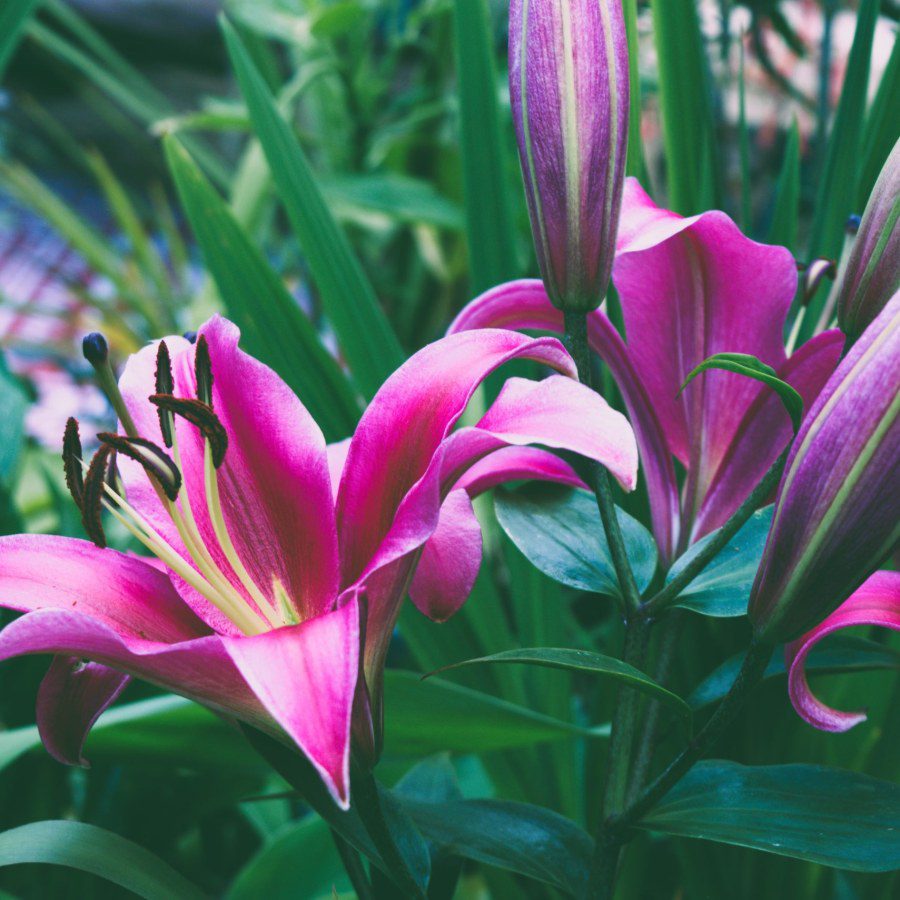Lilies are the crown jewels of any garden, but if you’ve been scratching your head over what type of soil to plant them in, you’re not alone. Whether you’re trying to grow Asiatic, Oriental, or the towering giants known as Tower Lilies, the soil pH plays a crucial role in their success. So, should you opt for acidic, alkaline, neutral, or even ericaceous soil? Let’s dig into the details.
Acid, Alkaline, or Neutral: What’s the Best Soil for Lilies?
Most lilies prefer soil that is slightly acidic to neutral, with a pH range of 6.0 to 7.0. However, different types of lilies have varying preferences:
- Asiatic Lilies: These hardy and versatile lilies are the least fussy of the bunch. They thrive in a wide range of soils, from slightly acidic to neutral (pH 6.0 to 7.0). They don’t mind if your soil leans slightly alkaline, making them perfect for beginners.
- Oriental Lilies: These fragrant beauties prefer more acidic conditions (pH 5.5 to 6.5). If your soil is naturally alkaline or even neutral, consider adding organic matter like peat moss or using ericaceous compost to bring the pH down.
- Tower Lilies: A relatively new hybrid, Tower Lilies are a cross between Oriental and Trumpet lilies. They prefer slightly acidic to neutral soil, similar to Asiatic lilies, but can tolerate a bit more acidity like their Oriental relatives.
Ericaceous Soil: Is It Necessary?
Ericaceous soil is specifically designed for acid-loving plants, such as rhododendrons and blueberries. While Oriental lilies appreciate slightly acidic conditions, they typically don’t require full-blown ericaceous soil. However, if your garden soil is particularly alkaline, it might be worth considering ericaceous compost to help your Oriental lilies thrive.
Asiatic vs. Oriental Lilies: What’s the Difference?
Understanding the difference between Asiatic and Oriental lilies is key to providing the right soil and care:
- Asiatic Lilies: Known for their early bloom and wide range of colors, Asiatic lilies are sun-lovers that grow well in most garden soils. They have little to no scent, making them perfect for those who prefer a fragrance-free garden. These lilies are also among the hardiest, thriving in USDA zones 3-9.
- Oriental Lilies: Blooming later in the season, Oriental lilies are renowned for their large, fragrant flowers. They typically require more acidic soil than Asiatic lilies and prefer a bit of afternoon shade, especially in hotter climates. Oriental lilies are slightly less hardy, doing best in USDA zones 5-9.
- Tower Lilies: These impressive hybrids can reach heights of up to 8 feet, with multiple blooms per stalk. Combining the hardiness of Asiatic lilies and the fragrance of Orientals, Tower Lilies do best in slightly acidic to neutral soils. They offer the best of both worlds, making them a fantastic addition to any garden.
Best Varieties and Their Soil Preferences
Here’s a quick guide to some of the top lily varieties and their soil preferences:
- ‘Enchantment’ (Asiatic Lily): Bright orange blooms with a slight upward-facing cup. Soil: Slightly acidic to neutral (pH 6.0-7.0).
- ‘Casa Blanca’ (Oriental Lily): Pure white, highly fragrant flowers. Soil: Acidic to slightly acidic (pH 5.5-6.5). Consider using ericaceous compost.
- ‘Golden Splendor’ (Trumpet Lily): Tall with large, yellow trumpet-shaped flowers. Soil: Slightly acidic to neutral (pH 6.0-7.0).
- ‘Stargazer’ (Oriental Lily): Deep pink with white edges and a powerful fragrance. Soil: Acidic to slightly acidic (pH 5.5-6.5).
- ‘Miss Feya’ (Tower Lily): Towering red blooms with a light fragrance. Soil: Slightly acidic to neutral (pH 6.0-7.0).
- ‘Netty’s Pride’ (Asiatic Lily): Unique dark purple flowers with white edges. Soil: Slightly acidic to neutral (pH 6.0-7.0).
- ‘Robert Swanson’ (Orienpet/Tower Lily): Stunning red and yellow blooms. Soil: Slightly acidic to neutral (pH 6.0-7.0).
Final Thoughts: The Dirt on Lilies
When it comes to planting lilies, the soil pH isn’t just a minor detail—it’s the foundation for growing healthy, beautiful plants. For the best blooms, match your lily variety with the right soil. If your garden soil doesn’t naturally fit the bill, don’t be afraid to amend it. With the right care, your lilies will reward you with stunning blooms year after year.


